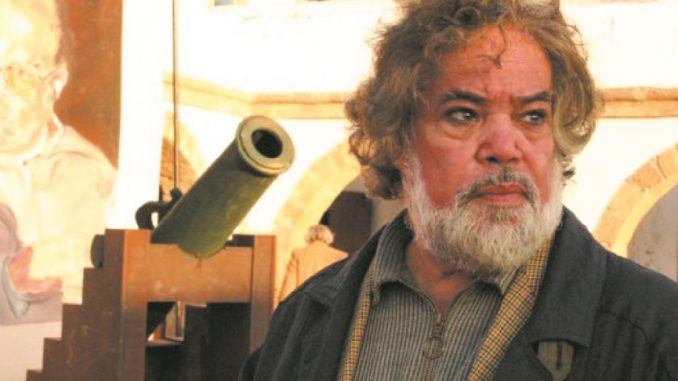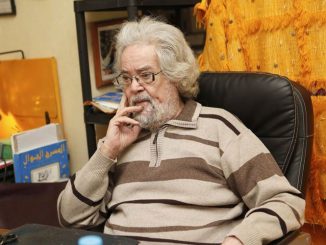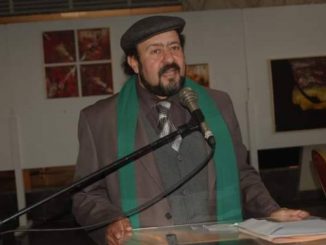
Tayeb Saddiki, the imperishable memory of the “The lovers of the stage always have a sincere nostalgia for the man who greatly contributed to the foundation of the bases of an authentically Moroccan theatrical expression, by making the national heritage the basis of his productions and by drawing his ideas from the depths of the collective imagination.
In the early beginnings of theatre in the post-colonial period, Tayeb Saddiki, in addition to his self-centered yet endearing side, will distinguish himself by his overflowing creativity, his great conceptual mastery and his audacity to engage in avant-garde experiments at the local, regional and even international levels.
The author of the immortal masterpiece “El Harraz” left nothing to chance in his works. The smallest element was of great importance to him. From the staging to the set and costumes, from the scenography to the acting, Tayeb was very keen on details. He was a perfectionist who was feared by all those who worked under him or those who accompanied him for ages.
It is said that Tayeb was unpredictable, acerbic and sometimes extravagant, yet he was highly appreciated by his troupes, who were under the spell of his theatrical genius and natural ability to direct. Above all, he was sensitive to the problems of each member of his teams and tried to create a good atmosphere at work, even when it was at its worst, at a time when meagre fees were always late and money was very scarce in the artistic sphere.
With a degree of obsession for the performing arts, Tayeb Saddiki had a particular passion for Morocco’s heritage and its folklore expressions. He was constantly in search of a theatre that resembled him. That is why he deepened his academic research and drew inspiration from world experiences to create a theatre that is fundamentally imbued with the fundamentals of ancestral Moroccan identity.
“We can’t speak of one theatrical experience in Tayeb’s case, but several experiences, because, passionate as he was, he never stopped reading, researching and experimenting. Each one of his plays was a project that broke with what had gone before,” his son Mohamed Bakr, president of the Tayeb Saddiki Foundation, told MAP, which has set itself the mission of perpetuating the legacy of the deceased.
In his eyes, the work of the deceased cannot be catalogued in any one genre, because he could reconcile two theatrical expressions in the same play, especially since Tayeb “did not like theoretical flights of fancy and fixed classifications”.
“All that mattered to him was to make the show accessible to everyone and bring the general public into the theatre. He was concerned to see all social categories, workers and intellectuals, and all age groups, children and the elderly, interested in a new experience, which has influenced Moroccan, North African and Arab dramatic art,” he said.
On stage, Tayeb Saddiki, the actor, seemed to take great pleasure in interacting with the audience, without his invasive presence obscuring the performance of his partners. His silence was eloquent, his gestures captivating and his reflections an invitation to travel through the ages in a fantastic universe, convinced that the Arabs knew theatre before Molière.
The author of “A Thousand and One Tales in the Souk Okad”, “The Sessions of Badii Ezzamane El Hamadani”, “Master Azzouz”, “El Harraz”, “Al Fil Wa Sarawil” and “Jnane Chiba” practiced his art until the last breath of his life. He was so obsessed with the theatre that it had become difficult to dissociate the man and the artist.
In one of his books, the critic and researcher Abderrahman Zidan points out that Tayeb Saddiki succeeded in reviving the authentic popular spectacle in his comedies, relying on the art of Halqa, by restoring the role of the storyteller and all the others of carnival folk expression.
The deceased cherished the idea of building an Arab and Moroccan theatre in place of Western theatre through a return to heritage and the making of indigenous performance, Zidan relates, noting that Saddiki used History as the backdrop for his works, distanced himself from Italian theatre architecture (commedia dell’arte) and introduced popular songs as an essential element of the performance.
Mohamed Bakr Saddiki is not short of anecdotes and confidences about the extraordinary life of the father. He was one of a number of Arab artists who produced a production played on the famous Royal Albert Hall in London, launched to the Canadian public ‘Nous sommes faits pour s’entendre’ and enlivened the Parisian public for a month by the adventures of “Jha”, an adaptation of Molière’s Les Fourberies de Scapin de Scapin.
“Tayeb Saddiki is the pure product of the French school. He was a disciple of Jean Vilar and Jean Genet, who knew how to use modern techniques wisely and ingeniously to bring the Moroccan and Maghreb heritage to the theatre and to enhance the rich oral tradition,” he said.
In order to preserve the legacy of the outstanding playwright, the “Tayeb Saddiki” Foundation takes care to collect the works, works and interviews of the deceased and to contribute to the dissemination of theatrical practices by providing guidance, training and accompaniment in this noble art.
Created in 2008, the Foundation has dedicated a channel on Youtube for lovers of Tayeb Saddiki’s works. This initiative is part of a global institutional project that includes archiving, training via workshop while ensuring that some of his masterpieces are replayed.




Be the first to comment